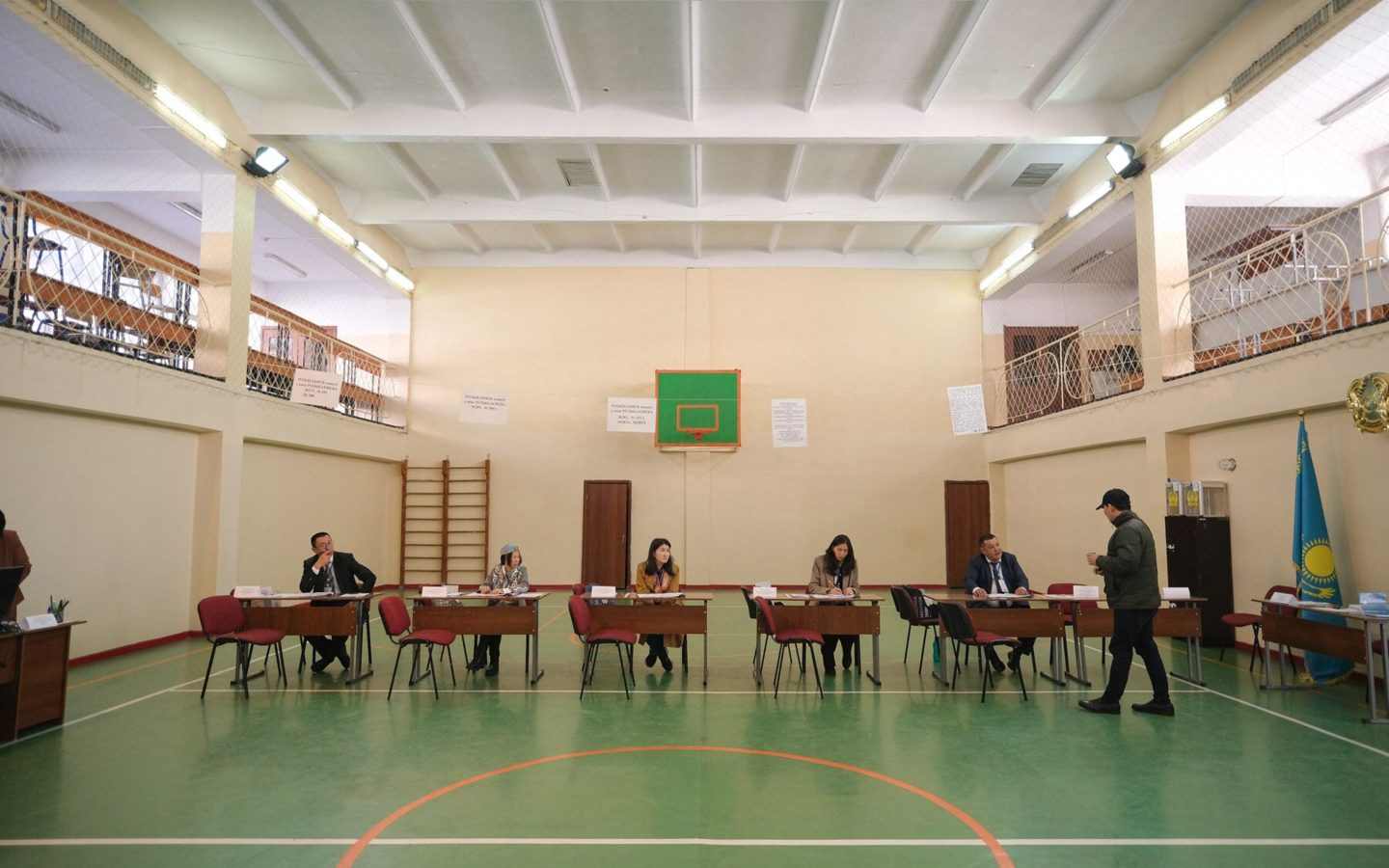Kazakhstan’s President Kassym-Jomart Tokayev called citizens to vote in the upcoming referendum, saying the construction of a nuclear power plant would be “the country’s largest project.” In an address on October 3, Tokayev said that “in order not to be left on the sidelines of global progress, we must use our competitive advantages.” Local press has engaged in a wide-ranging propaganda campaign for a “yes” vote, while dissent has been stifled.
Tamara Yeslyamova, the chief-editor of Uralsk Week, was fined 111,000 tenge ($230) and is facing a civil trial on October 4 for having conducted an unsanctioned public survey on the possible construction of a nuclear power plant. Since the referendum was set for October 6, only government-approved organizations have been able to conduct surveys. KISI, a government-sponsored think-tank said on October 1 that, according to their survey, the nuclear project has a 73% approval rate. Last week, a court in Almaty fined activist Abzal Dostiyar for the same reason.
The local governments of at least six cities and one town denied permission to hold rallies against the construction of a nuclear power plant, activists noted on October 1. Opponents of the nuclear project had filed requests to hold rallies in Almaty, Petopavl, Pavlodar, Aktobe, Uralsk, Shymkent, and Ridder. All requests were denied. Several activists have reportedly been detained across the country.
On October 3, Almaty police filed an appeal with the ministry of justice to deprive Galym Nurpeissov of his lawyer license. Nurpeissov told Vlast this decision concerns his refusal to agree to classify the civil case against the detained opponents of the nuclear power plant. Nurpeissov previously defended, among others, people accused in the aftermath of Qandy Qantar (Kazakh for ‘Bloody January’) and journalist Duman Mukhammedkarim.
Kazakhstan’s government issued a $1.5 billion Eurobond on October 4 in the London Stock Exchange and in the Astana International Exchange. This is the first issue since 2015 and comes on the back of favorable economic outlook, as forecast by ratings agencies.
Foreign investors in the NCOC consortium, which operates the Kashagan offshore oil and gas field, proposed alternative options to the government of Kazakhstan in an effort to resolve a $5 billion environmental fine, Bloomberg sources said on October 1. Italy’s Eni, Britain’s Shell, US’ ExxonMobil, and France’s TotalEnergies have allegedly proposed to earmark $110 million in social investments over the next two years.
As the Kashagan field readies for planned maintenance, Kazakhstan said on October 3 that it will slash its oil output in compliance with its promises to the OPEC+ group of oil exporters. According to two Reuters sources, Kazakhstan had exceeded its quota in September, days after making fresh commitments to cut production.
Kazakhstan’s ministry of agriculture responded to Rosselkhoznadzor, Russia’s Agricultural Control Authority, on October 3 that there is no trace of pathogenic bacteria in Kazakh wheat supplies to Russia. On September 23 Rosselkhoznadzor asked Kazakhstan to suspend grain exports. The ministry of agriculture said it wants to see evidence of any relevant violation before ordering a suspension of supplies.
The Anti-Corruption Agency said on October 2 that a trial against former minister of justice Marat Beketayev will continue behind closed doors. The Agency said the trial is classified because it also concerns arbitration disputes involving the government, the proceedings of which are secret. Notably, Beketayev was considered the champion of Kazakhstan’s attempt to win an arbitration case against Anatol Stati and his Moldovan associates. The arbitration ended earlier in July.
The price that Qatar’s Lesha Bank is poised to pay to buy Bereke Bank could underestimate the real value of the bank, Rassul Rysmambetov, a financial markets expert, told Vlast on October 1. In August, the regulator approved the proposed transaction, which would transfer Bereke from the state holding Baiterek to Lesha for 65 billion tenge ($134 million). This price, according to Rysmambetov, only includes the book value of Bereke, “perhaps minus government deposits and non-performing loans.”
After 31 years at the helm of Kazakhstan’s most-renowned human rights organization, Yevgeniy Zhovtis left his position of director of the Bureau for Human RIghts on September 29. A veteran lawyer, Zhovtis will stay on as a consultant, while Denis Dzhivaga, the new director, settles in.
Поддержите журналистику, которой доверяют.








